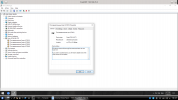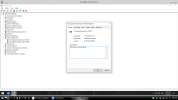I run some Windows 10 guests in bhyve on a couple of desktop computers. I don't use them much, they are more there if I need Windows apps than anything. I noticed this on one computer last week, and was thinking it was just come corruption with Windows. Today, I was testing another computer, and it is doing the same thing. When the VM starts, I open up a VNC viewer window, and it start through the initial boot screen, then gives me a "Preparing Automatic Repair" then blue screens with a stop code "Memory Management." My Xubuntu and Haiku VMs are loading without issue.
The one system is running FreeBSD 13.2-RELEASE, the other I just updated to 14.0-RC4. I am using /sysutils/vm-bhyve/ to manage the VMs, and have setup nvme emulation for the storage. I can try setting up a new VM or re-installing Windows in the VM to resolve the issue, but I really want to know what changed on both systems to cause the same error. Any info you can pass along?
The one system is running FreeBSD 13.2-RELEASE, the other I just updated to 14.0-RC4. I am using /sysutils/vm-bhyve/ to manage the VMs, and have setup nvme emulation for the storage. I can try setting up a new VM or re-installing Windows in the VM to resolve the issue, but I really want to know what changed on both systems to cause the same error. Any info you can pass along?



